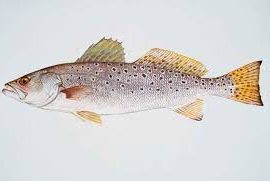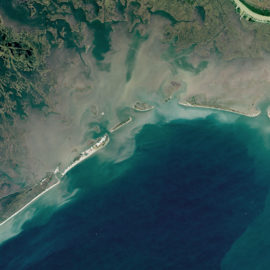
The speckled trout is a sport fish and the disparity between Texas and Louisiana is striking. Are we trying to clear out the stock?
Decades ago Fram, the maker of auto oil filters, came up with one of the greatest marketing slogans ever: “Pay us now, or pay us later.” Everyone could relate to that. Do the necessary maintenance now or face much higher costs later. That slogan keeps coming to mind when I hear some fishers and their supporters in parish governments arguing against the state’s planned controlled river sediment diversions. They don’t want their target species — specks, reds, shrimp and oysters — moved by the fresh water. But the latest science and the facts from the wetlands, including from speckled trout, are telling them this: Suffer some affordable losses now or face much higher costs later.
nola.com
In school we would say to those not doing well, look in the mirror to see the problem. The same is here for the doubters.
And if they want to find the real reason their future is in doubt, they should just look in their mirrors. Here’s why. Fishers paint a picture of the entire Barataria estuary instantly flipping from mostly brackish to mostly fresh the moment the diversion opens, permanently removing their target species from the estuary. That’s not what the computer models show. The diversion will only be opened during high river periods, not year-round. It will take 50 years to slowly lower salinity levels across the basin and only the areas close to the diversion outlet will make a complete change to fresh water. The expanding southern edges of the wetlands in the project area will show only a slow, gradual salinity change and then maintain intermediate to brackish salinities due to Gulf tides. That’s great habitat for estuarine finfish like specks and reds as well as many of their favorite foods such as menhaden and anchovies. Yes, guides — today’s commercial fishermen — will likely have to travel further for specks and reds, but those species will not be removed from the estuary. And, yes, some oyster fishers in the mid-section of the basin likely will have to move. But the state has set aside $55 million dollars to help them find new, more productive locations and learn better fishing techniques. In fact, the diversion is likely the only way to keep oysters, specks, reds and many other coveted species inside the basin over the long term.
This is the message the speckled trout is sending us.
Recently the Department of Wildlife and Fisheries agreed with some fishers that falling catches indicate it’s time to reduce the daily limit on specks from 25. Biologists are not surprised. A coastal delta’s most productive era for fisheries is after it’s been abandoned by its river and begins to naturally fall apart. It transitions from all fresh to brackish, which supports many more species. And as the marsh breaks up into smaller sections it creates more edge — shoreline — which provides protection and food for larval stages of fish, shrimp crabs and more. Meanwhile, the mud dissolving into the open water enriches the water for the entire food chain. That’s why Louisiana could support a 25-fish daily limit in specks for so long, while Florida has a five-fish limit and Texas is down to three. But when the ratio of open water begins to surpass the amount of marsh left, production begins to drop. That’s what’s happening now. And if those marshes are not rebuilt, eventually we’ll have limits like Texas or Florida.
The alternatives are not good.
Many fishers want the state to rebuild wetlands by pumping in sediment dredged from nearby rivers. That works faster and is less expensive initially. But it’s much more expensive in the long run because unrelenting subsidence means it will have to be redone every 20 years. And the costs go up the further from the sediment sources. Diversions are more expensive to build but less costly in the long run because they can keep sustaining marshes — and fisheries — as long as the river is flowing. So, fishers can choose between paying a little now, or much more later. Of course, our fisheries are doomed either way unless we quickly reduced the carbon emissions driving sea level rise acceleration. And the politicians most fishers here keep reelecting oppose most emissions controls. So, the faces they see in the mirror will also determine their futures.
As noted, we vote against our self interest.



